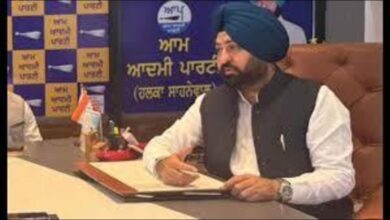Shivraj Singh Chouhan offers farmers bonus over MSP

Election-bound Madhya Pradesh has decided to try out yet another new scheme to compensate farmers: cash payment of ₹500 per quintal (100 kg) of soyabean and maize, even if growers of these commodities get prices equivalent to federally fixed minimum support prices (MSPs).
The decision to offer a flat bonus means the state government will not implement the so-called PM-AASHA (Pradhan Mantri Annadata Aay Sanrakshan Abhiyan), a programme announced by the Centre on September 12 to ensure remunerative prices to farmers.
This is because the guidelines for PM-AASHA don’t include a flat bonus, implying that the state government will have to fund the programme on its own. Elections to the state’s assembly are scheduled to be held on November 28.
The decision on the flat bonus was made on October 5, a day before the model code of conduct that prevents governments from taking policy decisions that could affect the outcome of the polls, came into effect. Like many other states, Madhya Pradesh has witnessed protests by farmers hit hard by the agrarian crisis affecting cultivators across India.
“This is a scheme for a flat bonus even if these commodities are sold above MSP. Till now, 0.79 million tonnes of soyabean have been traded in agricultural produce market committees (APMCs) of Madhya Pradesh,” Rajesh Rajora, the state’s principal secretary, told HT. APMCs are state-run wholesale markets. Madhya Pradesh is the largest grower of soyabean, followed by Maharahstra.
The PM-AASHA scheme announced in September has two main components: the price support scheme or PSS and the price deficiency payment scheme or PDPS.
MP was the first state to experiment with the price deficiency payment scheme in 2017-18, branded as the “Bhavantar Bhugtan Yojana” for eight kharif or summer-grown crops. Under this, the government paid farmers the difference between the MSP and actual average prices. This model was included in PM-AASHA so that other states could also implement it.
The flat-bonus scheme floated by the state government means it has dumped the PDPS, the very scheme it piloted. “In reality this means that the state is not operating the PDPS scheme in its correct form as there is no link between the payment to farmers and actual price realised by him. Such a scheme is unlikely to be covered under the guidelines of PM-AASHA for reimbursement by the central government,” said Siraj Husain, former Union agriculture secretary and visiting fellow, ICRIER.
Had MP chosen to go with the PDPS scheme, it would have qualified to be reimbursed up to 50% of its losses for implementing the scheme under PM-AASHA.
The new scheme means the Shivraj Singh Chouhan-led Bharatiya Janata Party government is reverting to the practice of paying flat bonuses to shore up farmer support.
The government had offered ₹100 bonus per quintal of wheat between 2007-08 and 2012-13 (which went up to ₹150 per quintal in 2013-14 and 2014-15). Along with expanded irrigation and storage facilities, these measures saw MP increase its wheat procurement at MSP prices from 0.48 million tonnes to 2005-06 to 7.1 million tonnes in 2014-15, according to Hussain’s calculation. A slump in global commodity prices, along with the impacts of demonetisation, has since shrunk farm incomes in the state






